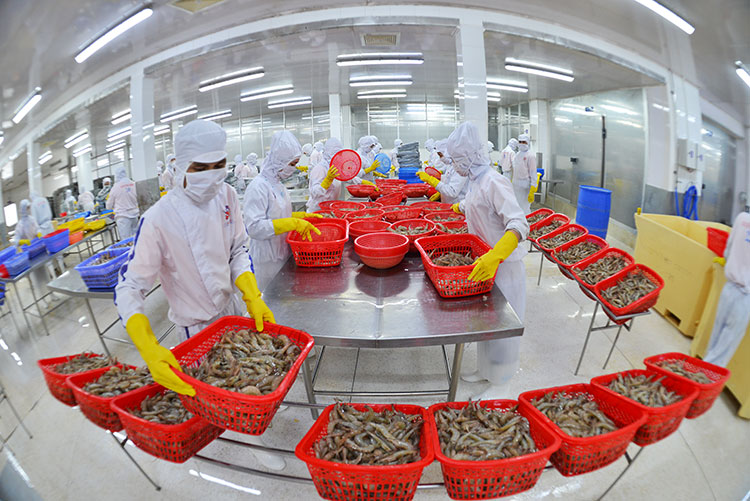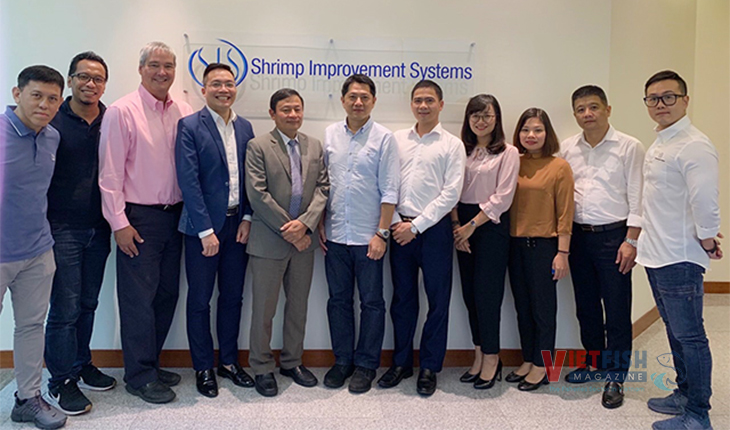CEPA agreement expands Vietnamese shrimp export opportunities to the UAE
From 2018 to 2022, the UAE ranked as the 16th largest importer of Vietnamese shrimp, accounting for about 0.5% of Vietnam's total shrimp export value. Annually, Vietnam exports around $20 million worth of shrimp to this market.
Although relatively small, the UAE is seen as a promising market due to its growing seafood demand, particularly for shrimp. The recent signing of the Vietnam-UAE Comprehensive Economic Partnership Agreement (CEPA) has created new export opportunities to this expanding market.

Main shrimp products exported to the UAE include fresh frozen black tiger shrimp, steamed frozen white shrimp PDTO, fresh frozen EZP shrimp, whole frozen black tiger shrimp, steamed frozen white shrimp, fresh frozen PD shrimp, breaded frozen white shrimp, fresh frozen white shrimp, and fresh frozen Nobashi white shrimp.
Leading shrimp exporters to the UAE include Camau Seafood Processing and Service Joint Stock Company, Nam Kinh Seafood Co., Ltd., Minh Phu Seafood Corporation, and Minh Phu Hau Giang Seafood Joint Stock Company.
Vietnamese shrimp faces strong competition in the UAE from India, China, and Ecuador. Indian shrimp dominate with nearly 60%-70% of the market share, while Ecuador, a more recent entrant, holds approximately 15%, leaving Vietnam with a 5%-7% share. India has effectively leveraged tariff advantages to increase its shrimp exports to the UAE over recent years. With the CEPA now in place, Vietnamese shrimp is expected to benefit from the highest possible tariff reductions, which could boost market share in the UAE.
CEPA marks Vietnam’s first free trade agreement with an Arab country, ushering in a new era of enhanced relations between Vietnam and the UAE and, more broadly, the Arab world.
Noteworthy within the agreement, the UAE has committed to a phased elimination of tariffs on 99% of Vietnamese exports, alongside trade and investment facilitation measures that align with current trends in digital transformation and sustainable development.
Due to its strategic location, advanced logistics networks, and modern port infrastructure, the UAE acts as a key gateway, potentially enabling wider access for Vietnamese goods into the Middle East, Africa, and Europe.
Moreover, the UAE’s growing population, high incomes, rapid urbanization, and a preference among younger consumers for seafood are likely to drive increased seafood consumption. Online searches for seafood products have also risen in recent years, pointing to further growth potential.
However, the UAE market remains highly competitive on both price and quality. Vietnamese exporters need to adopt advanced technologies, improve management practices, and reduce intermediary costs to lower product prices and strengthen competitiveness. Establishing Halal certification for shrimp exports will also be critical for companies aiming to expand into this market.
VFM






